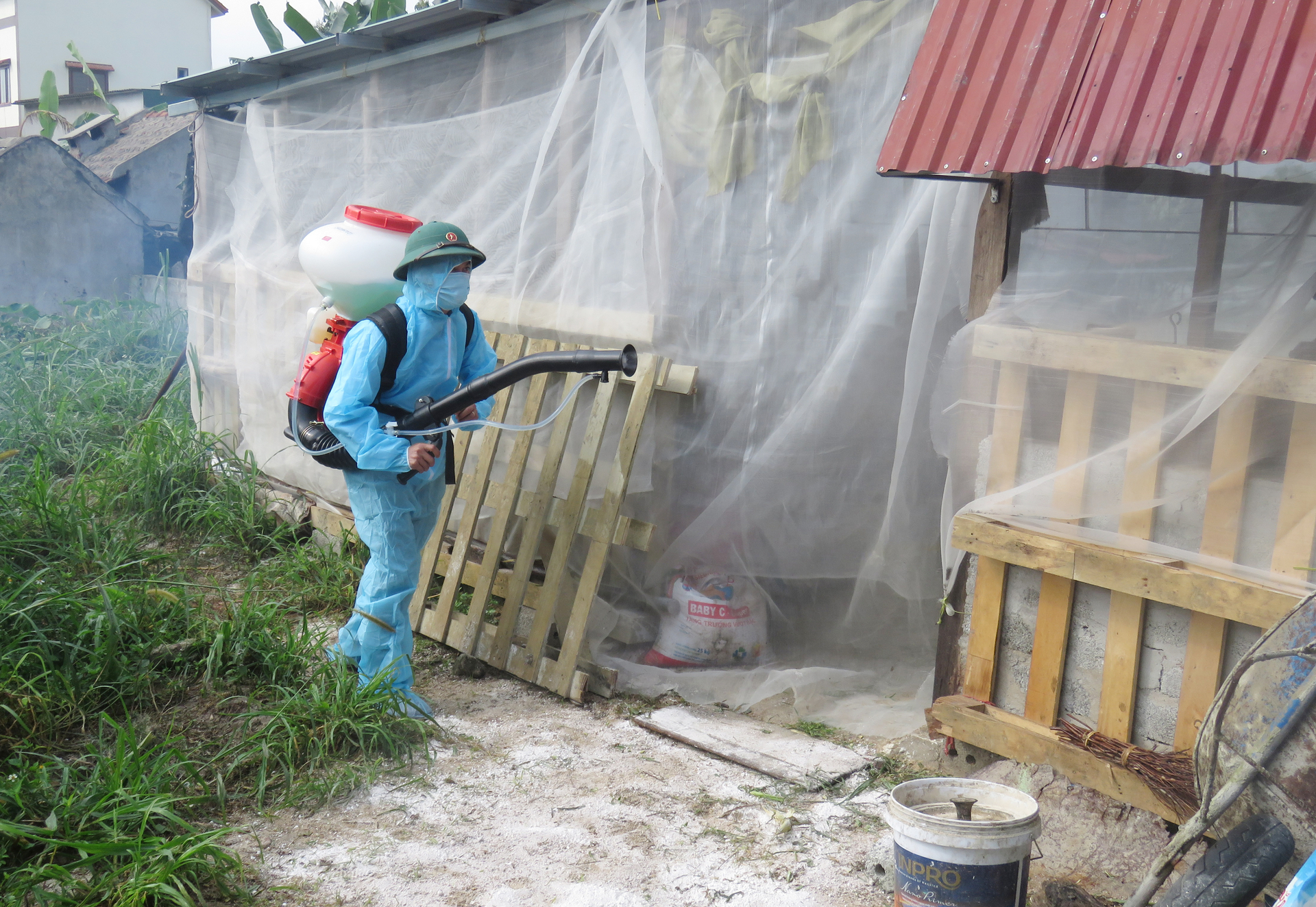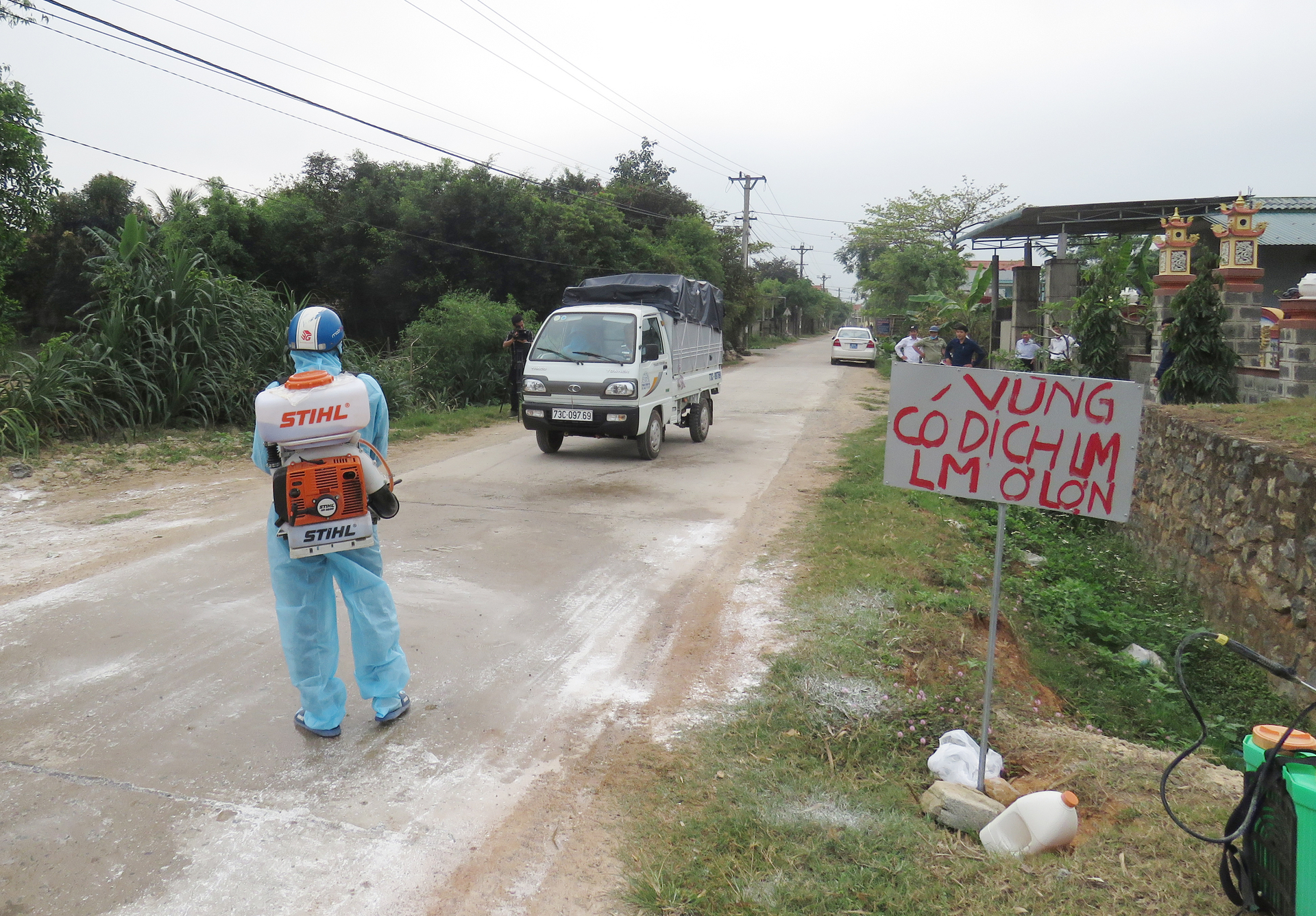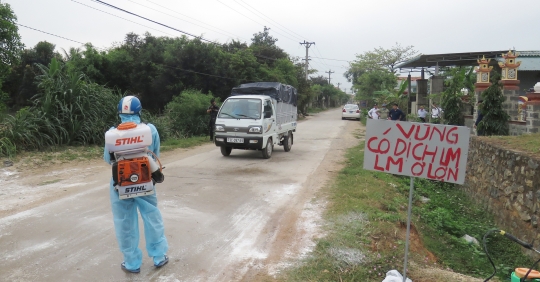
Without a basic veterinary system, preventing and controlling epidemics on the ground faced many difficulties. Picture: Tam Phung.
Many provinces and cities across the country are angry at the disintegration of the basic veterinary system due to the implementation of the unification and merger policies. Some provinces have returned to the old status quo, but there are still many places that still have issues that cannot be dealt with.
In Thanh Hoa province, the districts proposed at the same time to restore the basic veterinary system. Ministries and branches, including the Interior Ministry, the Ministry of Agriculture and Rural Development, have issued written recommendations, and the Provincial People’s Committee has written reports to the Provincial Party Committee, but these have not yet been considered and decided.
The confusion and confusion in livestock management and veterinary medicine has limited the control, prevention and prevention of livestock disease.
As of early 2019, district, city and township agricultural service centers have been officially established in Quang Binh Province. Departments at district level such as animal husbandry and veterinary stations, agricultural extension stations and plant and plant protection stations were combined to form the agricultural service center.
After 4 years of operation, the agricultural service centers show that it is the right and necessary policy. However, the confusion in animal husbandry and veterinary medicine has limited the control, prevention and prevention of disease in the animal herd in trouble.
Mr. Tran Cong Tam, Director of Animal Husbandry and Veterinary Sub-department in Quang Binh, said, “When moving to a service center, there is a lack of government management functions from provincial to facility. The inspection and prevention. Diseases in our livestock and poultry seem to be ruled out.”
In recent years, livestock, poultry and aquatic product epidemics have been frequent, the development of which has been complicated and unpredictable. Many emerging diseases have entered the livestock industry and caused great losses to the livestock industry, such as African swine fever, foot-and-mouth disease and skin rash.
Epidemics of livestock and poultry diseases are also common in Quang Binh province, but the basic veterinary system, a key link in disease prevention and control of the Animal Husbandry and Veterinary Medicine Subdivision, has collapsed.
Therefore, the monitoring and reporting of disease information is not carried out consistently, thereby losing the element of timeliness even when a situation has arisen in which responsibility has been imposed or the epidemic has been ignored early on.
Previously, according to the process, when an epidemic broke out, the subdivision could mobilize forces and equipment at district-level stations to participate in the emergency response. But at present, the agricultural service centers of the government unit are the county, city and township people’s committees, so it is difficult for the sub-department to mobilize.
On the other hand, the human resources responsible for animal husbandry in the agricultural service centers are quite tenuous, and the main task is to reproduce and spread, so the lack of epidemic detection and control forces at the grassroots level has a significant impact on animal husbandry and the effectiveness of the epidemic. Anti-Epidemic Results.
Since the agricultural service centers lack government administrative functions, the work in quarantine, slaughter control, transportation, food safety control, etc. also faces difficulties.

Veterinarians at the facility spray disinfectants in livestock areas affected by foot-and-mouth disease. Picture: Tam Phung.
Mr. Tran Cong Tam said that according to the provisions of the Veterinary Medicine Law and its guiding documents, quarantine for out-of-province transportation is carried out by the provincial veterinary department and a quarantine certificate is issued at the place of origin.
“Currently, due to the merger into the agricultural service center, the quarantine work on site faces many difficulties. Provincial-level subdivisions do not authorize quarantines and do not issue quarantine certificates for county agricultural service centers because the quarantine officers must be civil servants while the center is not a business entity,” Mr. Eight confessed.
According to Mr. Tam, Quang Binh Animal Husbandry and Veterinary Division has only four to five animal quarantine officials. If you have to fulfill the tasks of 9 districts, cities and municipalities in the province, there are not enough people.
The force is small, but it has to undertake work in remote and remote areas such as Minh Hoa and Tuyen Hoa mountain districts, so it is difficult to absolutely ensure the process and regulations of the Veterinary Medicine Law.
Mr. Dinh Minh Huong, vice chairman of the Minh Hoa District People’s Committee, said that after the local veterinary stations were merged, there were many difficulties in controlling the implementation of the tasks.
“The center is a non-business entity that does not have the task of carrying out the slaughter inspection, but the inspection must be carried out regularly and continuously. “If the staff of the agricultural service center do this job, the provincial people’s committee must have a written order for this job,” said Mr. Dinh Minh Huong.
Not only the difficulties and shortcomings in inspection, disease prevention and control, but also the training and knowledge improvement of the basic veterinary staff have gradually decreased.
When the veterinary system no longer extends from province to district to municipality, education, training and dissemination of new legal documents, knowledge and professional techniques are also affected.
An official at the county’s agricultural service center in Quang Binh province said that when he was still at the veterinary station, he attended numerous training sessions on epidemic and new disease prevention and vaccination every year. Vaccines organized by the subdivision.
However, since there are no longer any primary veterinarians, the center’s staff rarely receive training. Your knowledge will dwindle if you don’t study hard yourself.

